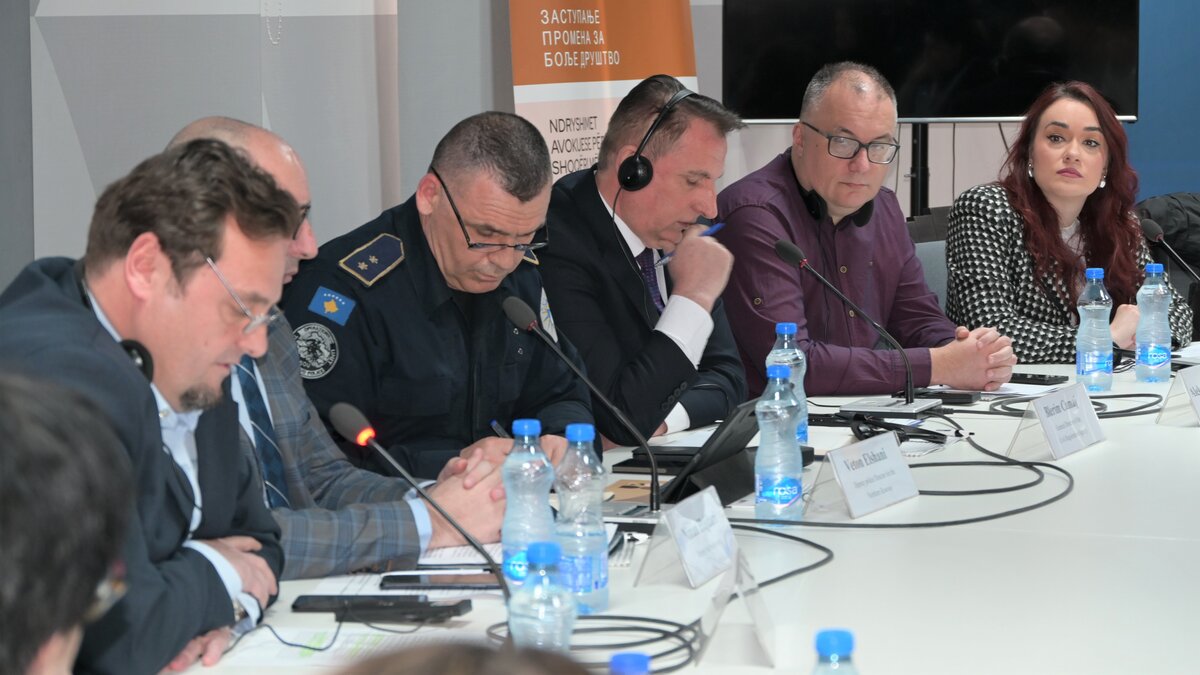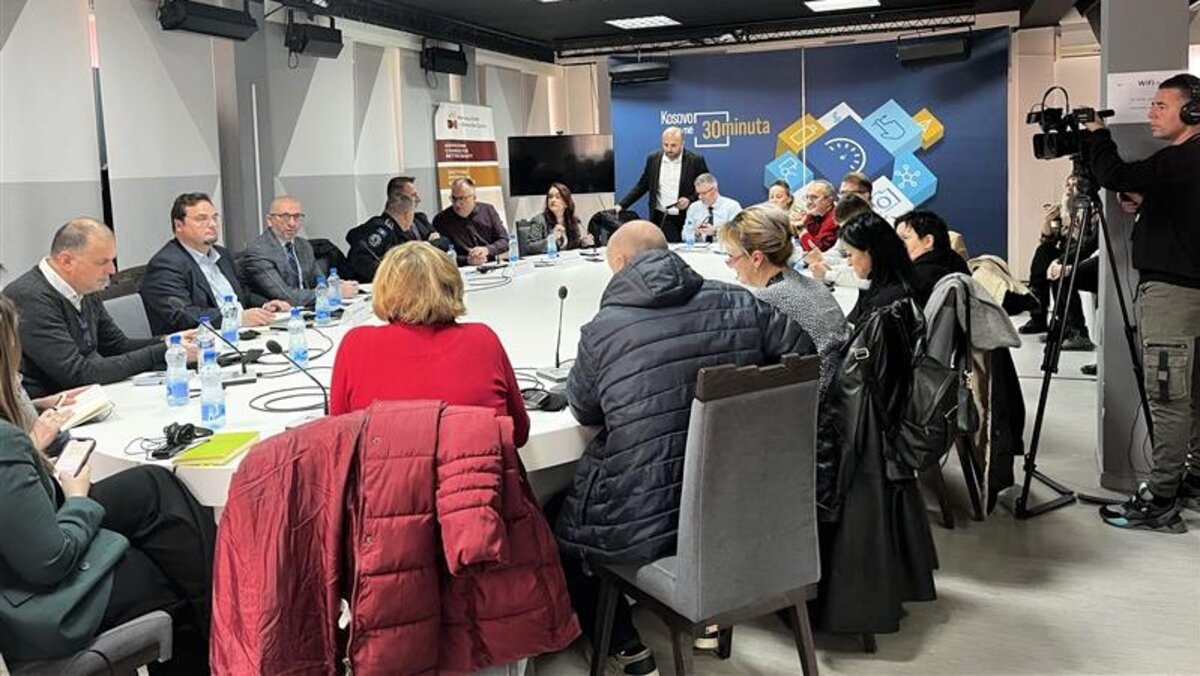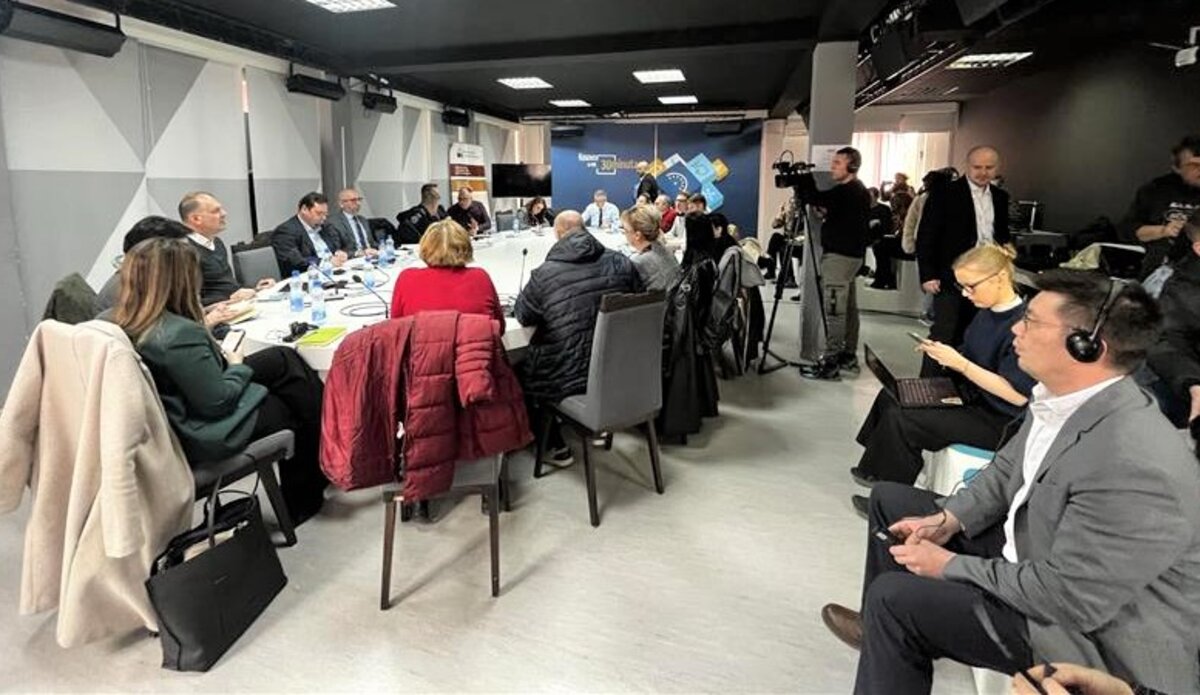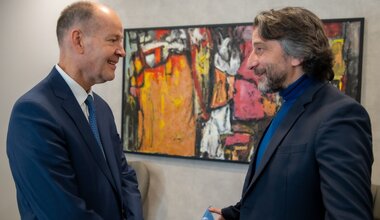Promoting the Right to Identity: A Path to Equal Access to Civil Registration in Kosovo
In a room in North Mitrovica filled with hope and concern in late February, UNMIK and the Advocacy Center for Democratic Culture (ACDC) NGO hosted a discussion on civil registration in the four Serb-majority municipalities in northern Kosovo s, bringing together residents, officials, civil society, and international representatives.
At the heart of the conversation was the adoption of a new decision by the Kosovo Ministry of Internal Affairs, which entered into force on 1 February 2025, aiming to assist Kosovo residents who had their civil status records like birth, marriage, and death certificates issued by Government of Serbia structures since 10 June 1999 - documents that were not accepted by Kosovo authorities - to register those in the Kosovo system.
The decision, however, is set to expire by 30 April 2025, raising questions about there being enough time for all to register.
The event was not just about policy, but about people’s lives—about the challenges, frustrations, and aspirations of individuals, particularly of the non-majority communities, who have fallen through the cracks being unable to register in Kosovo, thus far, and access basic civil status documents that many of us take for granted.

Chief of Human Rights Office at UNMIK, Mr. Jerome Bouyjou, emphasized the key human rights tied to civil registration: “These include the right to identity and legal recognition, especially for children, equal access to public services, protection from discrimination, and the right to participate in public affairs,” he explained, referencing international and regional human rights frameworks.
Many residents shared concrete examples of various challenges. As one of the attendees, a local resident, said: “For us, getting our birth and marriage certificates is not just paperwork; it is a key to access healthcare, education, and even jobs. Without them, we do not exist in the eyes of the law.”
Another resident explained: “They asked for [medical] vaccination records, but they do not accept those issued by Serbia. Sometimes documents get lost, or they just refuse us [Serbia-issued documents] outright”. The difficulties did not stop at documentation; long delays in processing applications were also a common complaint, further exacerbating the challenges.
Many Kosovo-Serbs born in Serbia proper but with strong ties to Kosovo, especially those over 18, struggle with obtaining their civil registration documents in Kosovo as the current decision doesn’t apply to them, and the process is not handled by the Kosovo Civil Registration Agency.

The ACDC noted a shift in residents’ resistance to registration in the Kosovo system. “Previously, people were reluctant to apply for [Kosovo] documents, but now the real issue is within the municipalities themselves. There is a lack of consistent procedures and not enough staff to process the growing number of applications,” said Aleksandar Rapajić, NGO’s Programme Director.
On the Kosovo government side, officials attentively listened to the concerns raised and came up with some solutions, such as the creation of an ad-hoc commission dedicated to resolving issues in the northern municipalities, which was established in early March, and introducing a complaints mechanism to help residents whose applications were rejected.
The Deputy Ombudsperson, Mr. Niman Hajdari, also pointed out that his office offers a complaints mechanism, accessible both in person and online, which is another path for residents to seek help and report problems with the system.
The event wrapped up with a mix of urgency and optimism. While challenges remain, the growing dialogue and trust-building efforts between residents, officials, and civil society showed a shared commitment to improving access to civil registration. The goal is clear: ensuring every resident can claim their fundamental right to identity.
 UN
UN United Nations Peacekeeping
United Nations Peacekeeping





